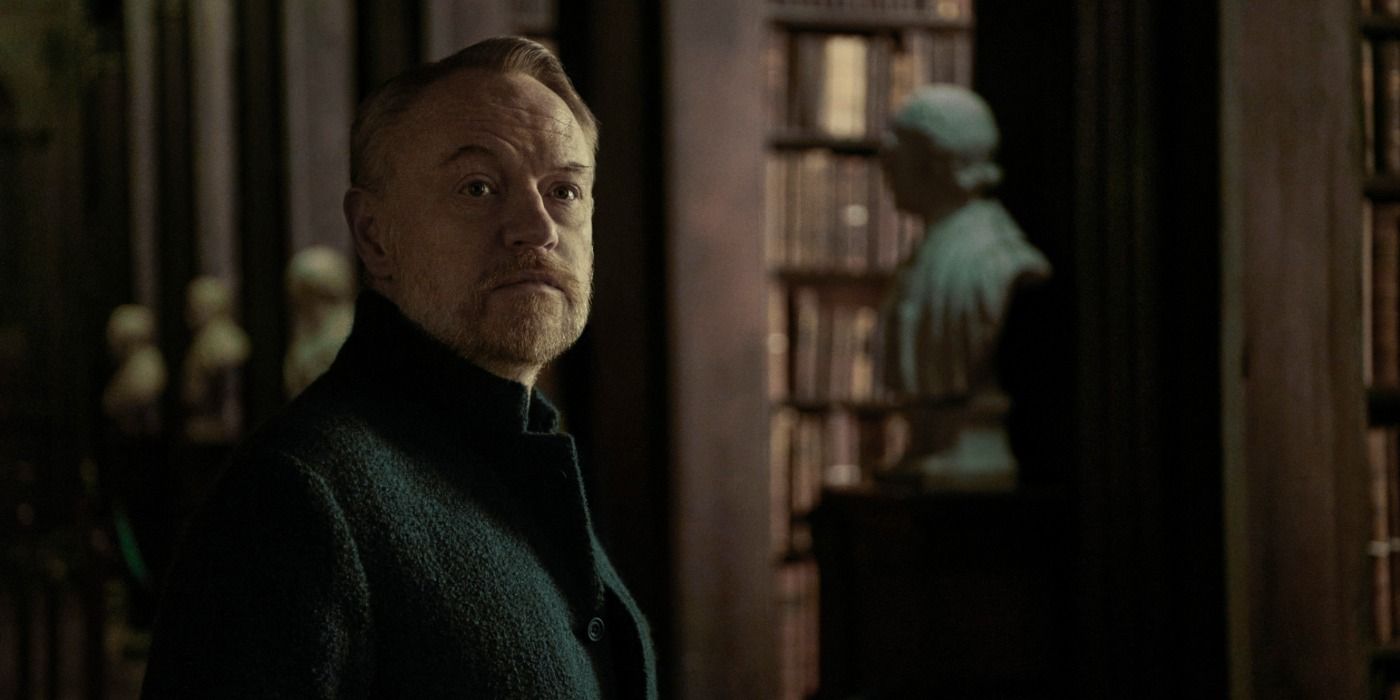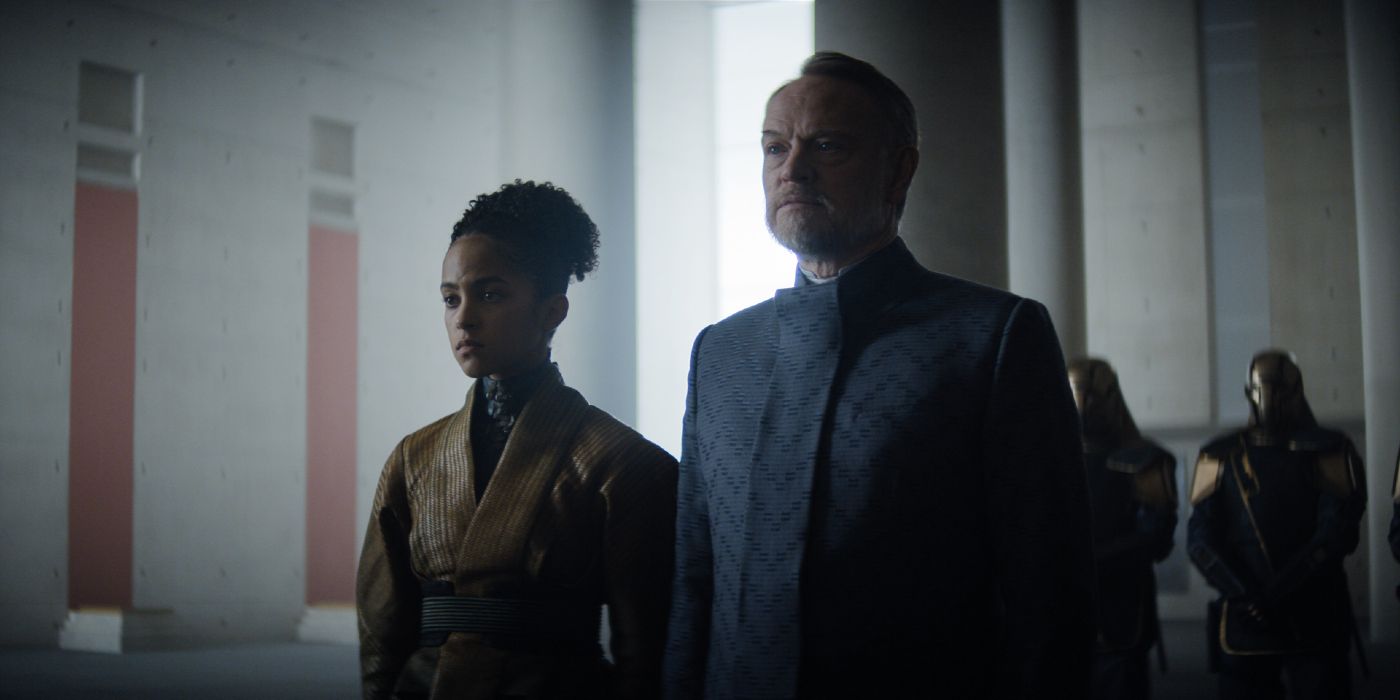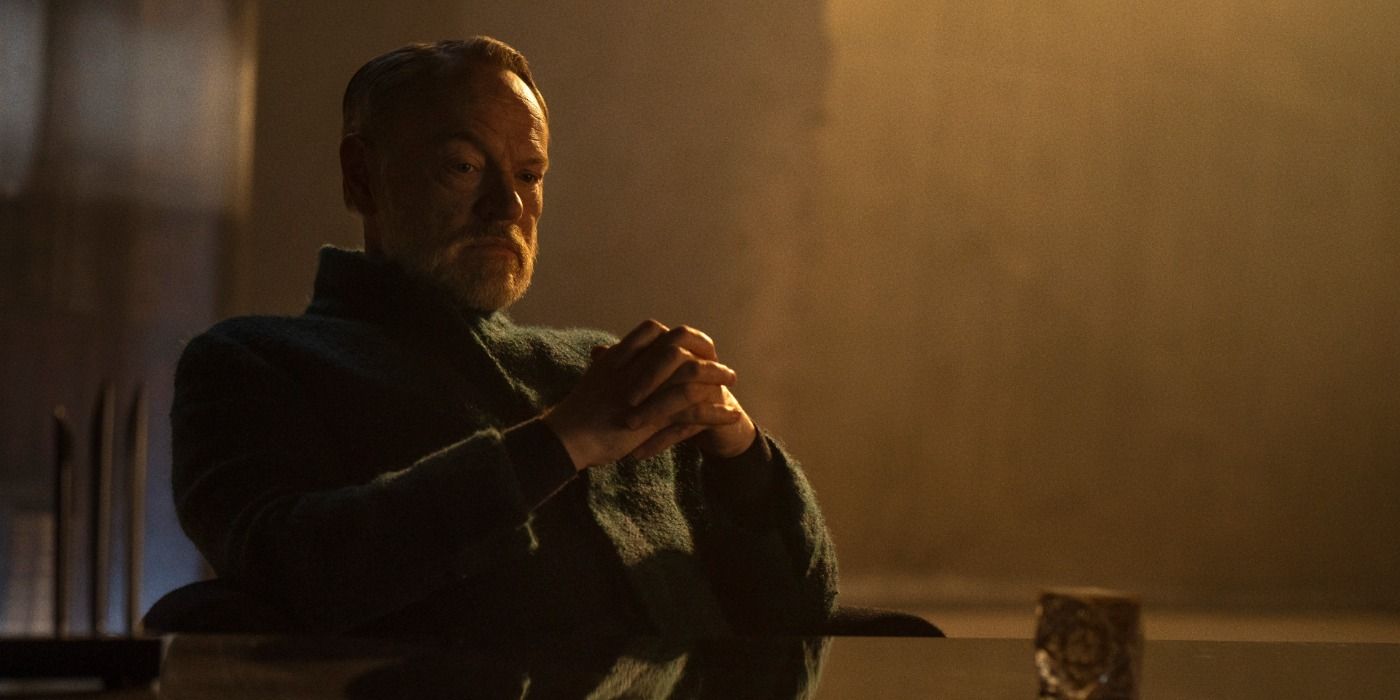Accomplished actor Jared Harris is a key player in Foundation, David Goyer's Apple TV+ series inspired by the books of Isaac Asimov. Asimov is one of the great forefathers of science-fiction, with his books and short stories introducing countless concepts and ideas that are now mainstream in the genre. Though, they've often been seen as difficult to adapt, whether for the film or TV screen, simply because they're so very complex and concept-driven. Foundation is a perfect example, spanning an entire millennium and deciding the fate of a galaxy.
David Goyer has adapted Foundation by focusing on two divergent forces. On the one hand, there is Lee Pace's Emperor Cleon, who stands in opposition to change; on the other, there is Jared Harris' Hari Seldon, a mathematician who has predicted devastating change coming to the Galactic Empire, and who aims to direct it. The clash between these forces - these two competing visions of the future, and their attempts to shape it in the present - is the driving narrative of Foundation.
Screen Rant spoke exclusively to Jared Harris about the key role he plays in the series, discussing how he developed Hari Seldon - a cerebral character in Asimov's books - into an appealing, three-dimensional character who drives the narrative.
Screen Rant: You've been in a lot of well-received and influential TV series. I was wondering what caught your eye with Foundation?
Jared Harris: Well, I was pitched the story by David [Goyer] about this epic thousand-year narrative, this sort of chess game between Hari Seldon and the Empire, and I'm dead-center at the heart of it, the lead of it. I was looking for something to follow Chernobyl with, something that was... I mean, Chernobyl was a fantastic story, it was heavy, I was looking for something that was ambitious but a little bit more nakedly entertaining as well.
I love the vision he pitched for it, and then I read the first two episodes, and they were really beautifully written. It's always about the writing because somebody can pitch you a good story, but it's gotta be what you read on the page.
How did you prepare for portraying Hari Seldon? Did you read the books, or did you go through the notes?
Jared Harris: Well, yes, I started to read the books. I mean, obviously this is just the first season, and the story covers the first part of the books. I did not try and get better-acquainted with mathematics! I thought I'd act that part.
One of the things about Asimov, he's a tremendous writer, but his books do tend to be quite concept-driven. What would you say is the emotional core of Hari Seldon?
Jared Harris: Well, I mean you're right. When I started to read them, they reminded me of being back at school when I was reading Plato, they are sort of dialects that are musing upon the constructions of society. Yeah, I mean, what we are attracted to in storytelling, we become invested in the characters and their journeys, and that's our job as actors - to find that connective tissue, to find the human being within this grand epic story, and if we can relate to that then you will hopefully be able to relate to that journey. So that's the basic job of an actor, no matter what you're doing, you have to connect on that human level.
How did you portray Hari Seldon as this three-dimensional character in his own right?
Jared Harris: The way that you portray any character is that you identify what the needs of that character are, what the goals of that character are, how they're trying to achieve it, what's standing in their way. The tricky thing with Hari Seldon is that he knows the story far beyond the point at which you are accessing it at that time, so there's always that sense he is withholding information, constantly. But you know, if it's important to him, if the success of the story is important to him, which is what you need to identify with, then you'll get an idea of what the stakes are, you know?
I like that image you mentioned of him as a chess player, where the best chess players are about five, ten, fifteen moves ahead of the move they're making.
Jared Harris: They're grandmasters, aren't they? I can never get about two or three.
Given the breadth of your experience, what unique challenges would you say science-fiction presents for you as an actor?
Jared Harris: You know, that's a really good question. It's not my first sci-fi outing. I think there can be a tendency to use the sci-fi genre as a sort of "out" if you like. To get you out of trouble. From my point of view, you have to make those kinds of stories very, very personal and very realistic in how the characters are able to manipulate, maneuverer through the story. If you're suddenly inventing sonic screwdrivers and stuff like that - I love Doctor Who, love it, but that's a different type of storytelling, and for me the closer you can get towards it feeling realistic, even though it's possibly 25,000 years in the future, then the better chance you have at connecting with an audience who's watching it 25,000 years earlier, you know? I think they did a very good job with that, because it's very much a human drama, and the things that they have concentrated on with all the various storylines is understanding immediately what the stakes are for each of those people, and we can relate to that.
One of the things I love with sci-fi is that it can ask questions about the human state so much, so with Hari Seldon it's basically - are human actions predictable? Can you quantify the movement of society? I just find it quite a fascinating concept. How did you feel dealing with such heavy concepts and presenting them?
Jared Harris: Well, if you were able to come up with some kind of a predictive model, algorithm or whatever - and right now we're at a time where people seem to be, there's these datasets out there that seem to be quite accurate - what it always comes down to is it's very difficult to predict the actions of an individual at any specific moment in time. So in a way, it makes it more human, and more unpredictable. Which then becomes more interesting. But I mean, from my point of view, you ask me about how do you deal with that as an actor? There's certain things you just have to take as being given, no matter what kind of story that you're in. You're playing Superman, you have to take it as given that you can fly, right?
One last question here, avoiding spoilers, what would you say was the most challenging scene for you to shoot?
Jared Harris: Well, it's always the first scene to tell you the truth. You spend a long time in prep and studying, and prepping your mind and prepping yourself to play a character and imagining what it is, but the moment you start actually being that character is when the cameras start rolling. That's when you start learning properly for the first time, and the difference between theater and film is in theater you're doing that in rehearsals, so you're presenting a very informed guess at what the character is, but you still don't know until the audience is there.
Here, we're experimenting on camera. But that's when you start learning for the first time, how close your idea was or how far off you are, and hopefully, you're being informed by new experiences and new thoughts and your understanding of the character grows exponentially. It doesn't happen until you actually start doing it.
Foundation premieres September 24 on Apple TV+.



